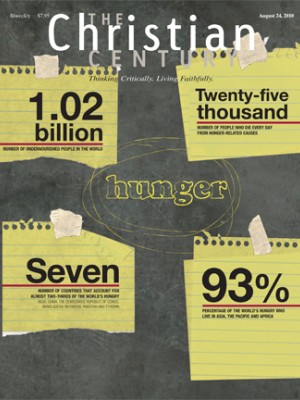Sunday, September 5, 2010: Psalm 139:1-6, 13-18
For those people who have no inclination to know God or learn about God, the interest of others in learning about God may seem strange. For those of us who want to know God, the yearning seems inevitable, like a default setting that we were born with. Twenty centuries ago, Rabbi Yochanan ben Zakkai reminded his students that they were not to take pride in their knowledge of Torah. Knowing God was what we were created for, he told them. It is woven into who we are.
John Calvin grounded our need to know God in our createdness: "What is the chief end of human life?" he asked, and answered, "To know God by whom we were created." This yearning is not the same as our need to "know" other human beings. We may spend an afternoon catching up with friends on Facebook, but this desire to know God compels us in a way that makes even the most articulate of us stammer to explain it. It can be more than a little embarrassing. There are certain skills and expertise we need to make a living, but this is something else. This enjoyment is more desperate. If we pause to contemplate this odd need, this unbidden longing, the whole experience may feel more than a little eerie.
Read our latest issue or browse back issues.
Even more eerie, however, is the 139th Psalm's dizzying accounting of God's knowing us. Just when we might imagine we were responsible for a holy quest for God, we discover ourselves searched for—and found! Being found reverses the terms and the risk of our investigation. "O Lord, you have searched me and known me," reads a standard translation, but searched has a remoteness and detachment foreign to the psalmist's breathtaking poetry. There is much to be said for the Jewish Publication Society's translation of "You have examined me and know me." To be examined conjures up the anxious experience of an annual checkup. The experience is physical. We stand naked and vulnerable or we clutch the flimsy illusion of a paper gown. The clothes that cover us are hung up; the scars that the world has carved into us are now visible, as well as the tattoo from a night's overindulgence, the sags and the pitiful wornness of skin.
The examination is relentless: "I don't like the look of this," "Well, at your age . . ." or "That needs to come off." But the merciless truth is merciful as well, because with the truth comes life. We sense the swirling vertigo described by the psalmist: "Such knowledge is too wonderful for me; it is so high."
The poet of Psalm 139 knew the panicked impulse to flee examination (vv. 7-12). Though we may evade knowing God by carelessness or indifference, we cannot escape God knowing us. It is in our DNA spun into that swirling double helix that determines us and apparently predestines us in ways we shudder to imagine. God's knowing is woven into the textile of our living because God is a weaver and a knitter too. In ancient Israel, as in most cultures, weaving and knitting were done by women; the psalmist pictures the Lord doing her knitting in a mother's womb. If that isn't enough to fracture our customary metaphors for God, the psalmist goes on to imagine the Lord weaving "in the depths of the earth," fashioning creatures made of earth (Gen. 2:7). In secret and mysterious places her hands knit together bone and muscle and tendon; they weave weft and warp of veins and arteries, nerves and fascia to fashion a physical human body.
The psalmist's fingers play over the strings of the lyre as arms embrace the instrument and the belly rumbles in hunger. This is what it is to be human and alive: "I praise you, for I am fearfully and wonderfully made!" The psalmist delights not simply in physical existence but also in being physically known and created. This human body, frail and vulnerable though it may be, is nothing less than proof of the existence of God. "The mystery of God is the mystery of our own bodies," writes Brazilian theologian Rubem Alves. Strength of arms, movement of body and the even more astounding wonder of our consciousness of it all: it can all end in a single instant—"to dust you shall return" (Gen. 3:19)—but for this instant there is light and breath and music and rejoicing, and all of it must be sung. Even at the end, as at our beginning, "I am still with you," says God.
Knowing God as the one who knows us far beyond any desire we have to be known, we surrender finally to the wisdom that God can be known only in wonder and astonishment. Our knowing is not defeated so much as it is overflowing the too small cups we have brought to the table. To read Psalm 139 correctly is to lose any sure footing in God's heights, to have our breath taken away—and then to have it restored.





